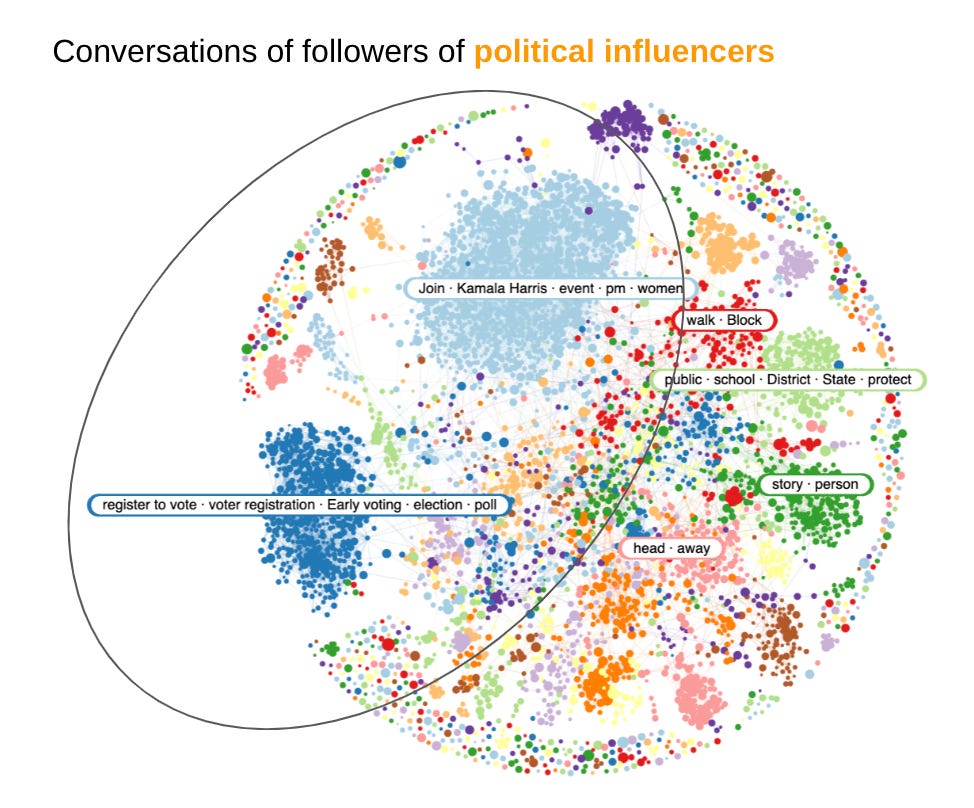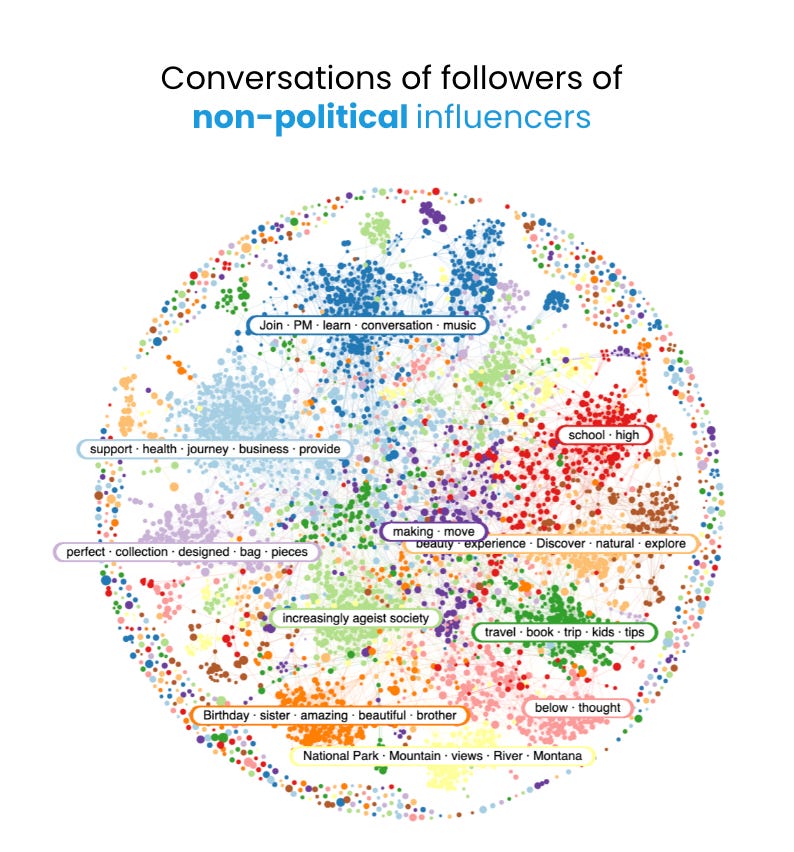Meeting in the Middle: Political vs. Non-Political Creators in the 2024 Election
Exclusive new data examines the differences in audiences reached by political vs. non-political creators during the 2024 Presidential Election.
This post is based on exclusive research released during our Influencer Lessons from the 2024 Election webinar last week. Watch the full webinar here.
Our team set out to explore the differences between "political" and "non-political" influencers and their audiences.
We define political influencers as creators who focus primarily on political content, while non-political influencers are those who typically share apolitical content but participated with us in a political campaign this cycle.
To achieve this, we analyzed:
📊 Conversations and social media profiles of 20,000 randomly selected followers of key political influencers featured in Wired’s A Visual Guide to the Influencers Shaping the 2024 Election.
🎯 Conversations and social media profiles of 20,000 randomly selected followers of People First non-political influencers who collaborated with political campaigns or PACs through us this cycle.
📝 Over 400,000 online posts by followers of both political and non-political influencers over the past 12 months.
Who Follows Political Influencers?
Followers of political influencers are often political commentators themselves or share content through a political lens. This audience includes a notable mix of established media figures and grassroots activists.
The most common self-descriptions among these followers are Political Communications/Media Professionals, Political Activists, and Progressive Content Creators. Notably, 60% of the followers identified themselves as social justice advocates, media professionals, or activists.
Who Follows Non-Political Influencers?
There is a striking difference among the followers of non-political influencers. Their audiences are a more diverse group, including small business owners, coaches, health practitioners, and individuals who describe themselves as parents.
Join People First and Infegy, a leading social intelligence platform and our research partner, for Influencer Impact: How Audiences Affected the 2024 US Election, a webinar on December 11th. Dive deep into how influencers and their audiences impacted the 2024 Presidential Campaign. For more information and to RSVP, click here.
Followers of political influencers frequently discuss elections and voter registration, with topics often aligning ideologically with the influencers they follow. Their conversations particularly focus on Kamala Harris and her efforts to mobilize voters.
The overwhelmingly positive sentiment score for mentions of Kamala Harris (83%) and the high negative sentiment score for Donald Trump (74%) indicate that audiences tend to reflect the sentiments of the creators they follow.
Followers of non-political creators are significantly more diverse and fragmented. Their topics of interest vary widely, encompassing health and wellness, lifestyle choices, personal milestones (such as birthday celebrations), and entertainment. Discussions range from travel adventures to marriage, as well as musical pursuits.
Takeaways
Due to the differences in their audiences, both political and non-political creators can benefit your organization or campaign in unique ways.
Political creators are especially valuable during primaries and in motivating and educating the base. However, they are less effective at reaching undecided, moderate, or low-propensity voters. These creators often engage with journalists and activists, making them ideal for amplifying an organization’s message to grasstops, recruiting volunteers, or soliciting donations and signatures.
Non-political creators excel at educating and persuading everyday people who aren’t deeply entrenched in political content. They can plant seeds to shift perspectives, inspire action on key issues, and engage a broad audience of Americans who might not actively seek out political messaging.
Following the 2024 elections, we anticipate nonprofits, advocacy groups, and campaigns will increasingly collaborate with both political and non-political creators to engage diverse audiences and decentralize their message distribution.
Watch the replay of Influencer Lessons from the 2024 Election for an in-depth look at this study and more, featuring our partners A-B and Fenton, highlighting successful creator campaigns during Election 2024.








